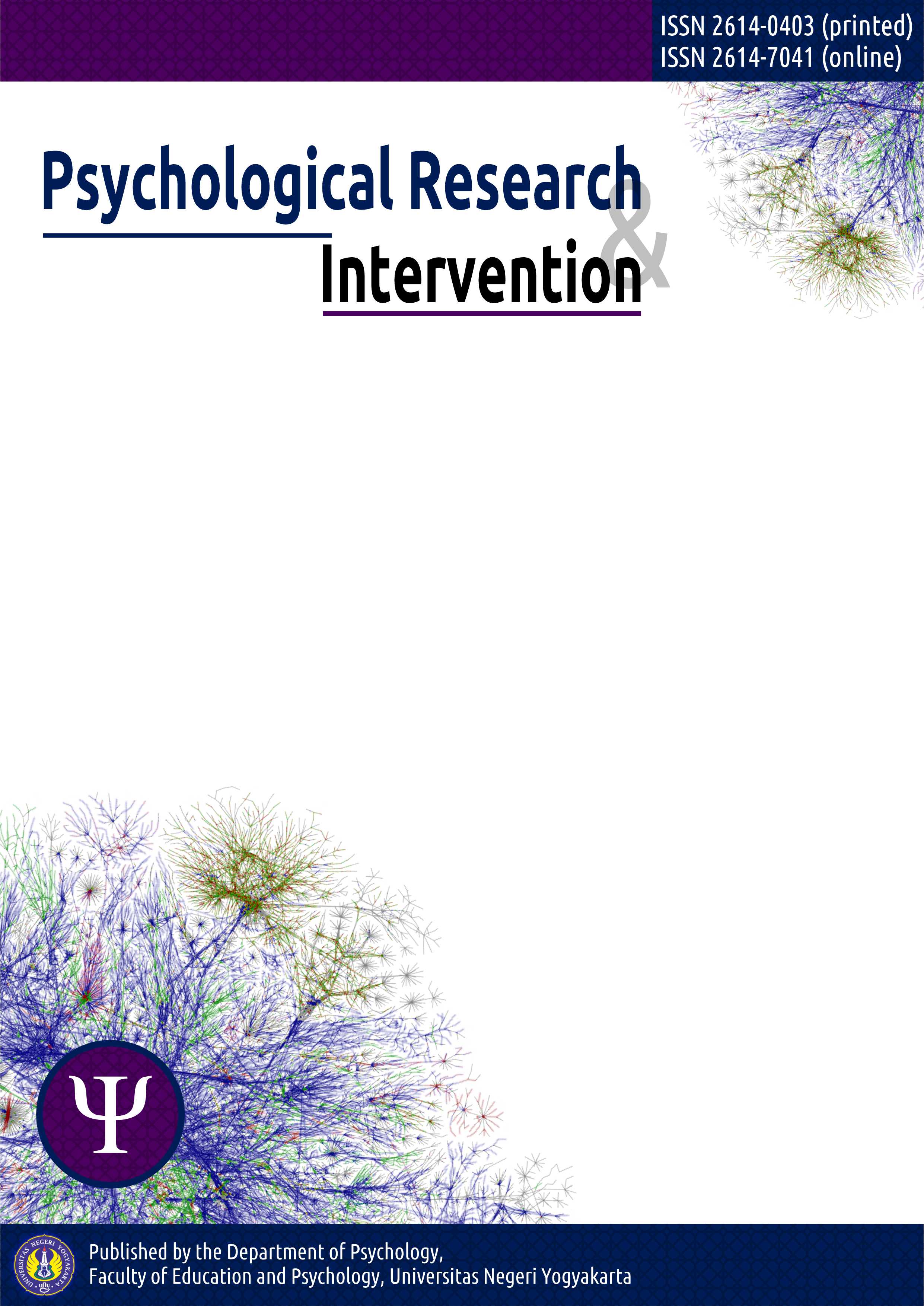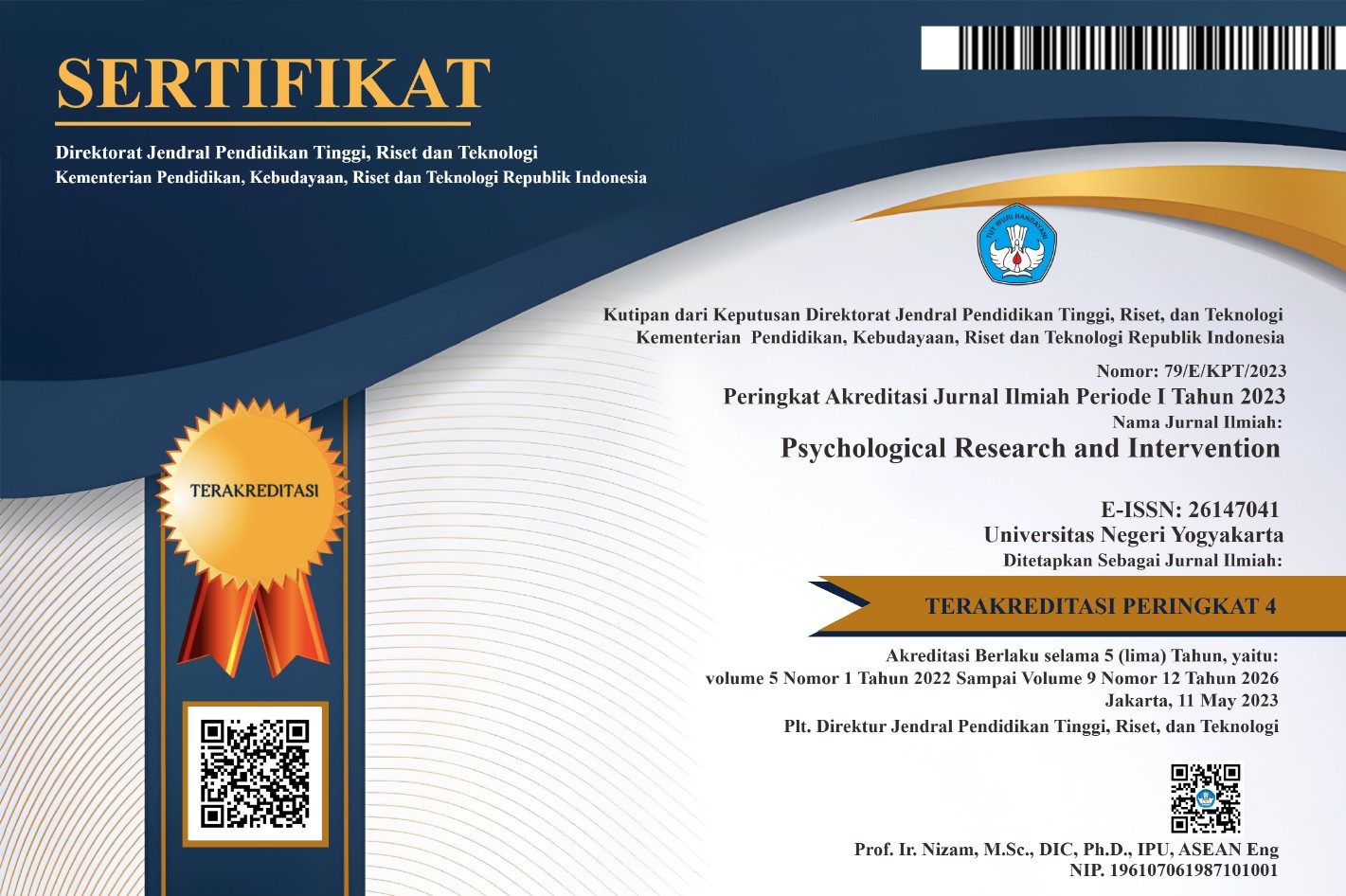Implementing shaping and differential reinforcement technique in helping children with language difficulty
DOI:
https://doi.org/10.21831/pri.v5i2.60492Keywords:
Shaping, Differential Reinforcement, Language Difficulty, Primary School StudentAbstract
This paper reports on the implementation of shaping and differential reinforcement technique to help a child who struggles in his school activity due to language difficulty. The intervention was conducted in total of 21 session with, 15 main treatment session, 3 session in the beginning of the treatment for baseline measurement and 3 sessions in the end of the treatment for follow-up measurement. Each session lasts 45 to 60 minutes for four weeks. The treatment employs a combination of shaping and differential reinforcement due to the nature of the difficulty faced by the participant. Changes in time spent on assignment and grade was recorded on each session. This study uses single-subject experimental design with baseline as pre-test and follow-up session as post-test. The study participant was Rudi, a boy aged 8. He's a 3rd grade student at local primary school. The result of this study indicates that the intervention program was able to reduce time spent on assignment as the participants is less inclined to do non-assignment related activity or exhibit disruptive behavior compared to baseline. Further, Rudi's grade also showed significant increase during the process and follow-up measurement.References
Bernhofer, J., & Tonin, M. (2022). The effect of the language of instruction on academic performance. Labour Economics, 78, 102218. https://doi.org/10.1016/j.labeco.2022.102218
Domjan, M. (2012). Principles of Learning and Behavior (6th ed.). Belmont, CA: Wadsworth/Cengage.
Kupzyk, S., Daly, E. J., & Andersen, M. N. (2011). A comparison of two flash-card methods for improving. Journal of Applied Behavior Analysis, 44(4), 781-792. https://doi.org/10.1901/jaba.2011.44-781
Martin, G., & Pear, J. (2015). Behavior Modification: What it is and how to do it (10th ed.). Boston: Pearson.
Molyaningrum, N., & Suyata, P. (2021). Pengaruh motivasi belajar, fasilitas belajar, dan penguasaan kosakata terhadap prestasi belajar bahasa Inggris siswa. LingTera, 8(1). https://doi.org/10.21831/lt.v8i1.12657
Ooko, P. A., & Aloka, P. J. (2021). Using selected behaviour modification practices to enhance reinforcement of reading abilities among dyslexic learners in Kenya. African Journal of Disability, 10, a707. https://doi.org/10.4102/ajod.v10i0.707
Putri, G. M., Rusli, R., & Safitri, J. (2019). The Effectiveness of Behavior Modification Using the Fading Technique to Improve the Vocabulary of Deaf Students in SLB-C Negeri Pembina Banjarbaru. Proceedings of the 2nd International Conference on Intervention and Applied Psychology (ICIAP 2018) (pp. 60-71). Atlantis Press. https://doi.org/10.2991/iciap-18.2019.5
Raygor, A. L., Mark, D. M., & Warren, A. (1966). Operant Conditioning of Reading Rate: The Effect of a Secondary Reinforcer. Journal of Reading, 9(3), 147-156. Retrieved from https://www.jstor.org/stable/40009405
Skinner, B. F. (1957). Verbal Behavior. New York, NY: Appleton-Century-Crofts.
Sturdy, C. B., & Nicolandis, E. (2017). How Much of Language Acquisition Does Operant Conditioning Explain? Frontiers in Pscyhology, 8, 1918. https://doi.org/10.3389/fpsyg.2017.01918
Whalen, C., & Schreibman, L. (2003). Joint attention training for children with autism using behavior modi¢cation procedures. Journal of Child Psychology and Psychiatry, 44(3), 456-468. https://doi.org/10.1111/1469-7610.00135












